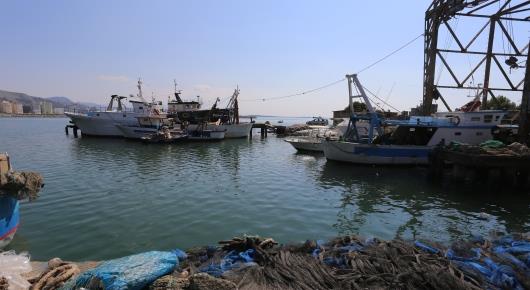Montenegro joins global treaty against rogue fishing practices

Montenegro is the latest in a growing list of countries to sign on to a powerful new international agreement to fight illegal fishing practices.
The FAO-brokered Agreement on Port State Measures to Prevent, Deter and Eliminate Illegal, Unreported and Unregulated Fishing entered into force in June 2016, when the number of Parties reached 25. Montenegro’s decision brings the number to 47 – counting all 28 members of the European Union as one – representing more than two-thirds of the global fish trade.
This gives the one-year-old treaty added heft, FAO Director-General Jose’ Graziano da Silva said recently at the first Meeting of the Parties in Oslo, adding that he was very confident more countries would join in the near future.
The movement to end rogue fishing practices is gaining momentum worldwide. Designed to prevent fishing vessels from landing illegal catches, the Port State Measures Agreement is part of a global framework to safeguard global marine natural resources and make fishing practices more environmentally sustainable.
The Agreement commits signatories to enhancing cooperation among fishers, port authorities, coast guards and navies – strengthening inspection and control procedures at ports and on board fishing vessels.
In practical terms, vessels must request permission for port entry. Port entry and port services must be denied to offending vessels, and port authorities must report violations to other countries – making it harder for illegal operators to offload and sell their fish elsewhere.
Rogue fishing accounts for around one-sixth of the total catch worldwide per year. That is roughly 26 million tonnes – worth about US$ 23 billion – and represents a huge threat to the sustainability of fishing in the world's seas and oceans.
"This is a crucial moment," Graziano da Silva said, noting that FAO itself has already committed US$ 1.5 million of its own funds for this purpose.
It represents a major contribution to achieving Sustainable Development Goal 14, specifically to an indicator under FAO’s custodianship that calls for an end to illegal, unreported and unregulated fishing by 2020.
Accession to the Port State Measures Agreement remains open to newcomers – both countries and regional economic integration organizations. In the meantime, the existing Parties are looking at implementation questions. An important aim of the recent meeting in Oslo was to discuss technical issues including the responsibilities of port states.
In FAO’s Europe and Central Asia region, Albania, Iceland and Norway are already Parties to the Agreement, as is the European Union. The Russian Federation and Turkey have indicated their intention to join.
FAO has a proven track record on fisheries issues with Montenegro, helping the country comply with international standards for animal aquatic health. An FAO regional programme in which Montenegro participated supported scientific cooperation for responsible fisheries in the Adriatic Sea.
16 June, Podgorica, Montenegro
